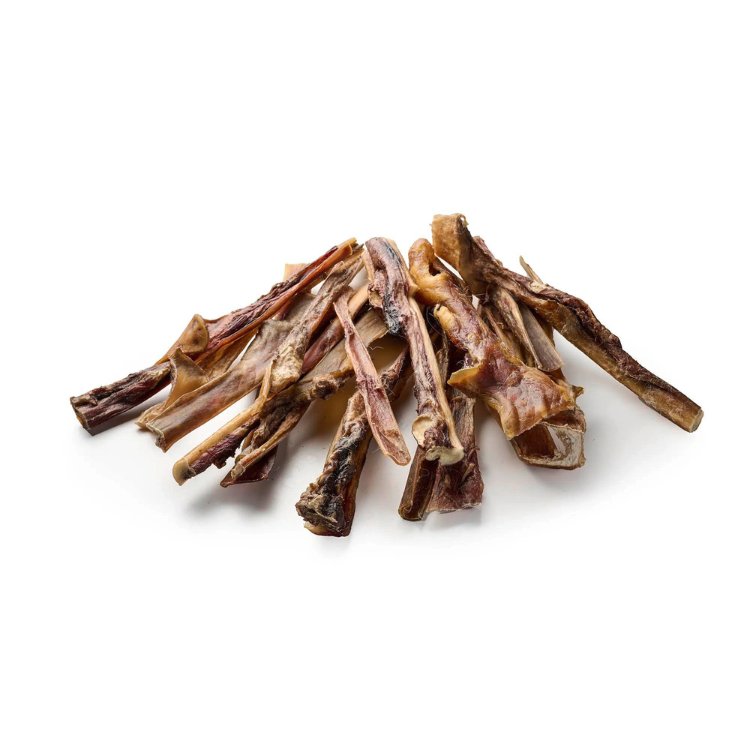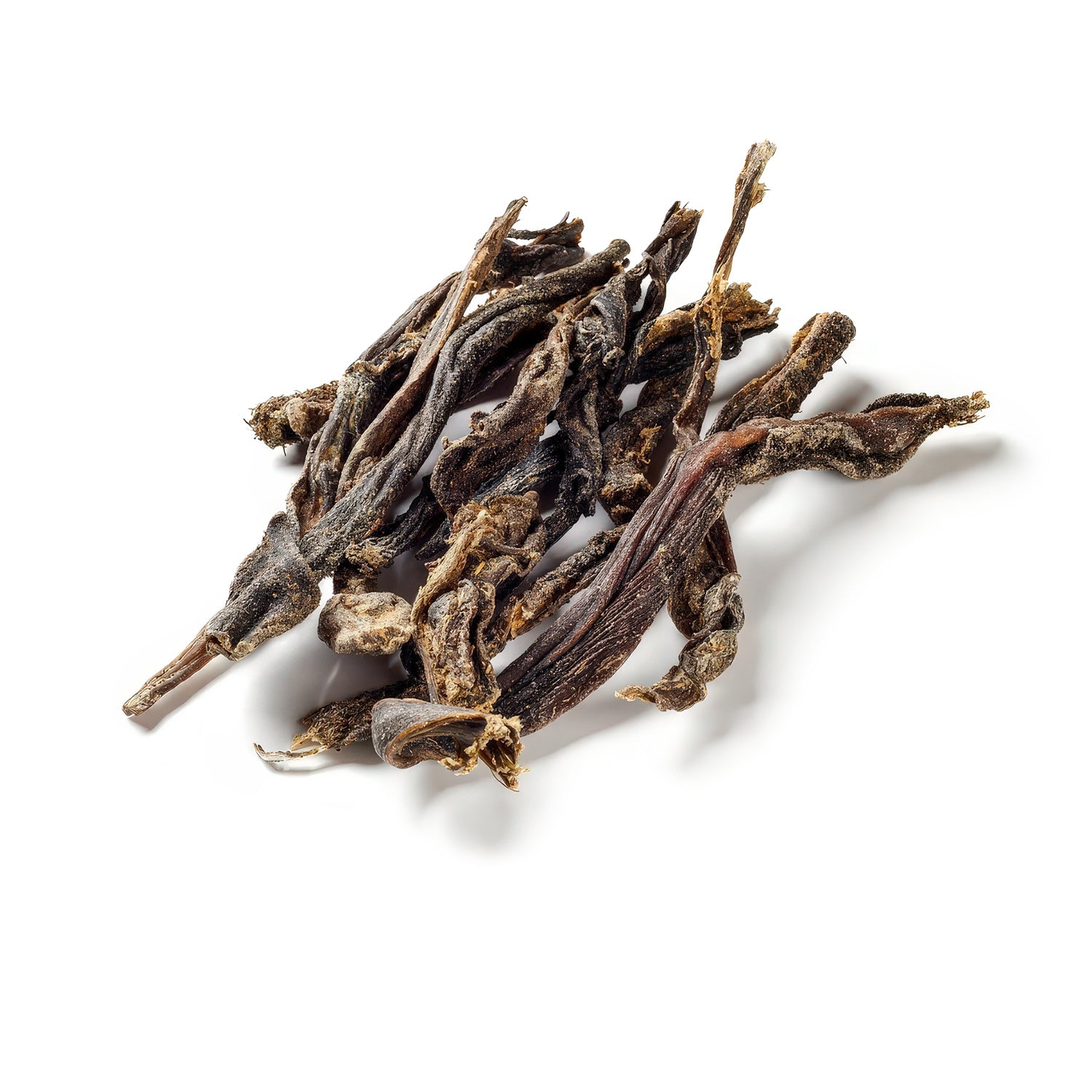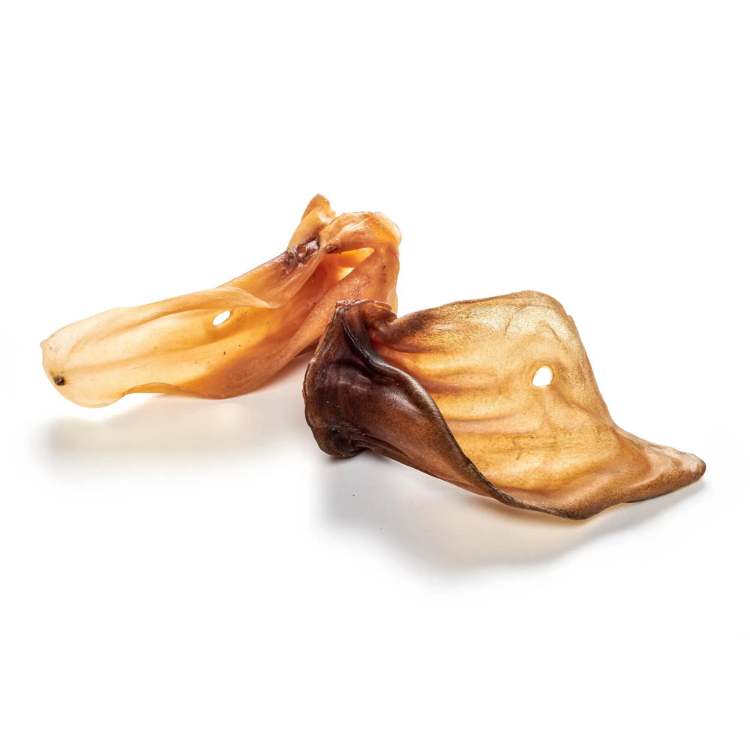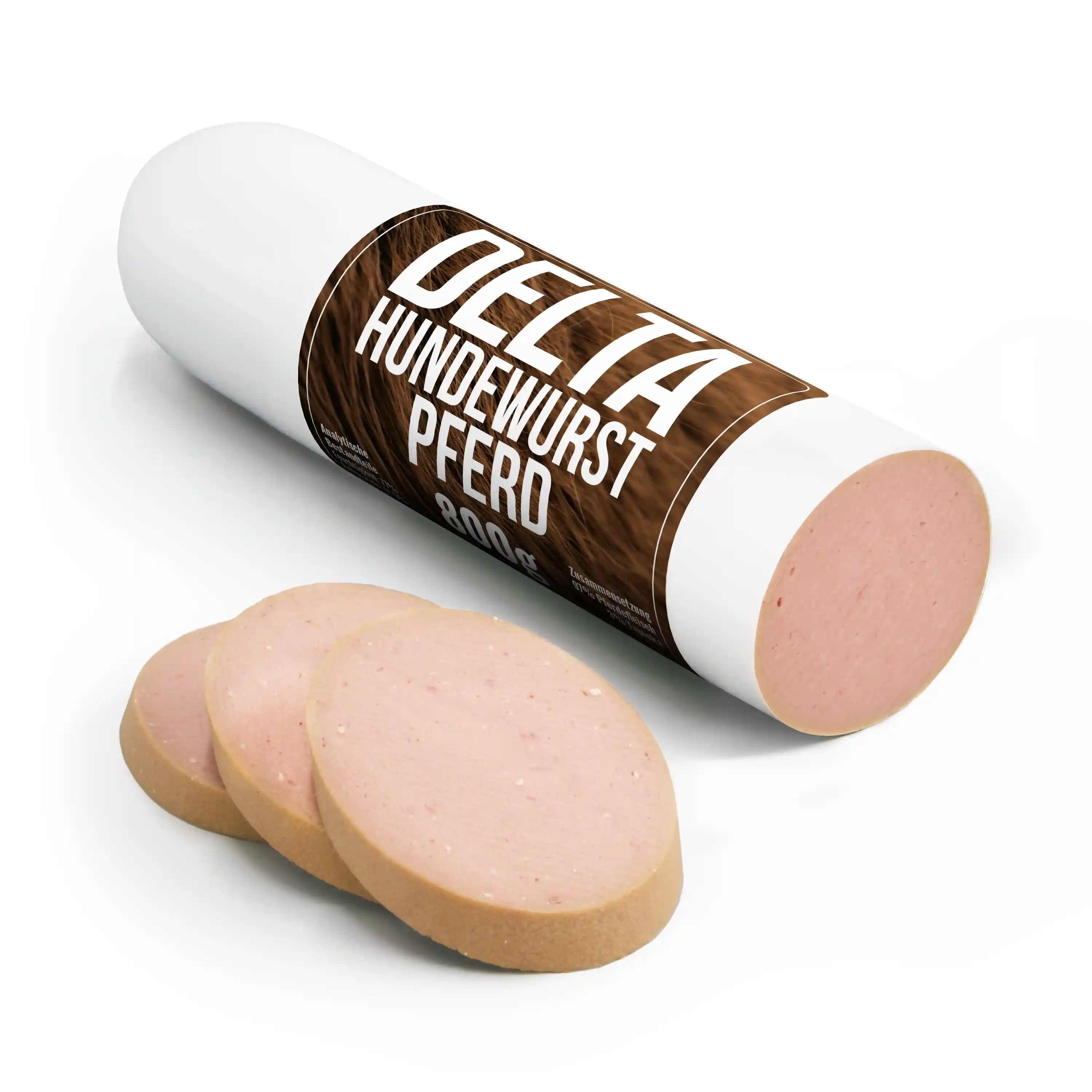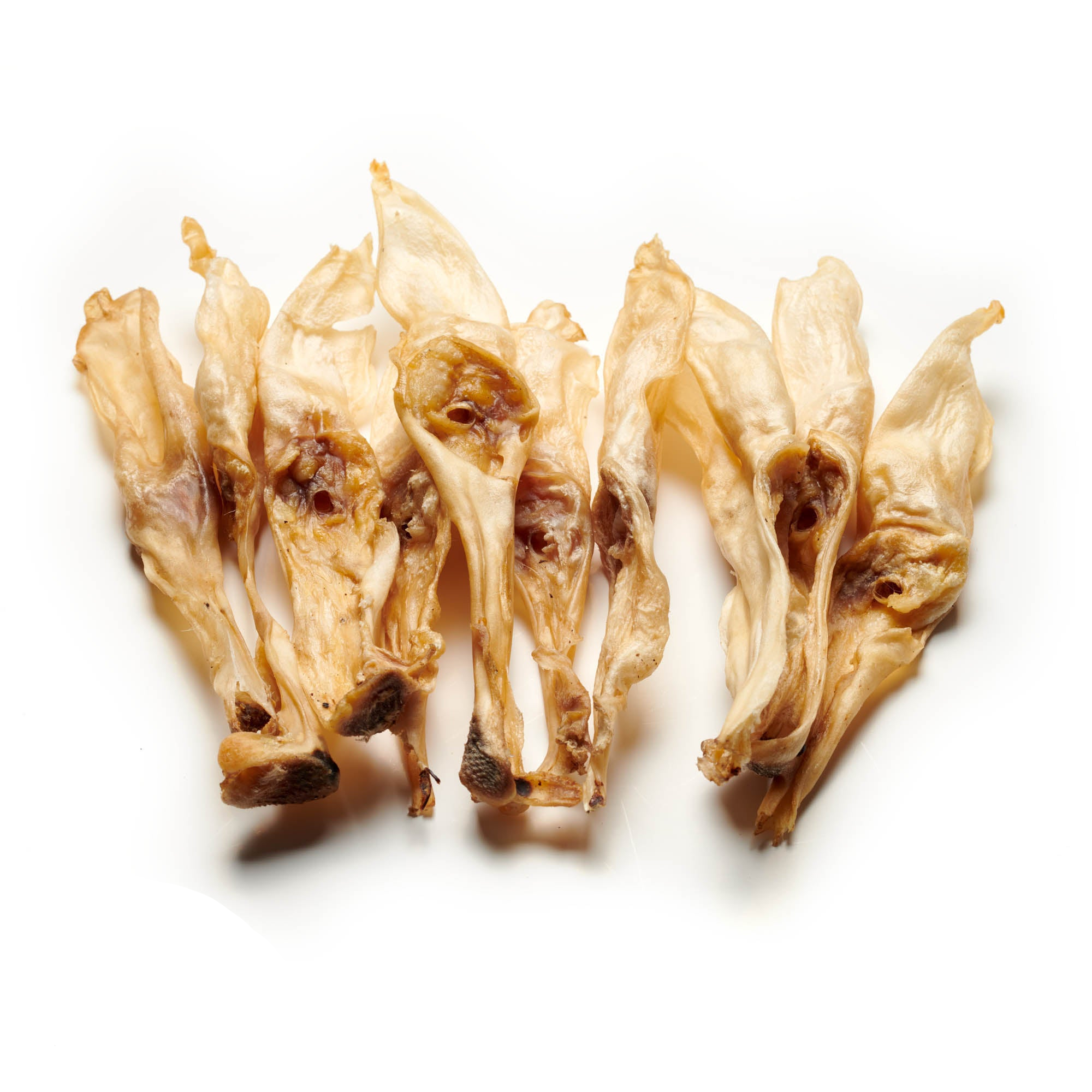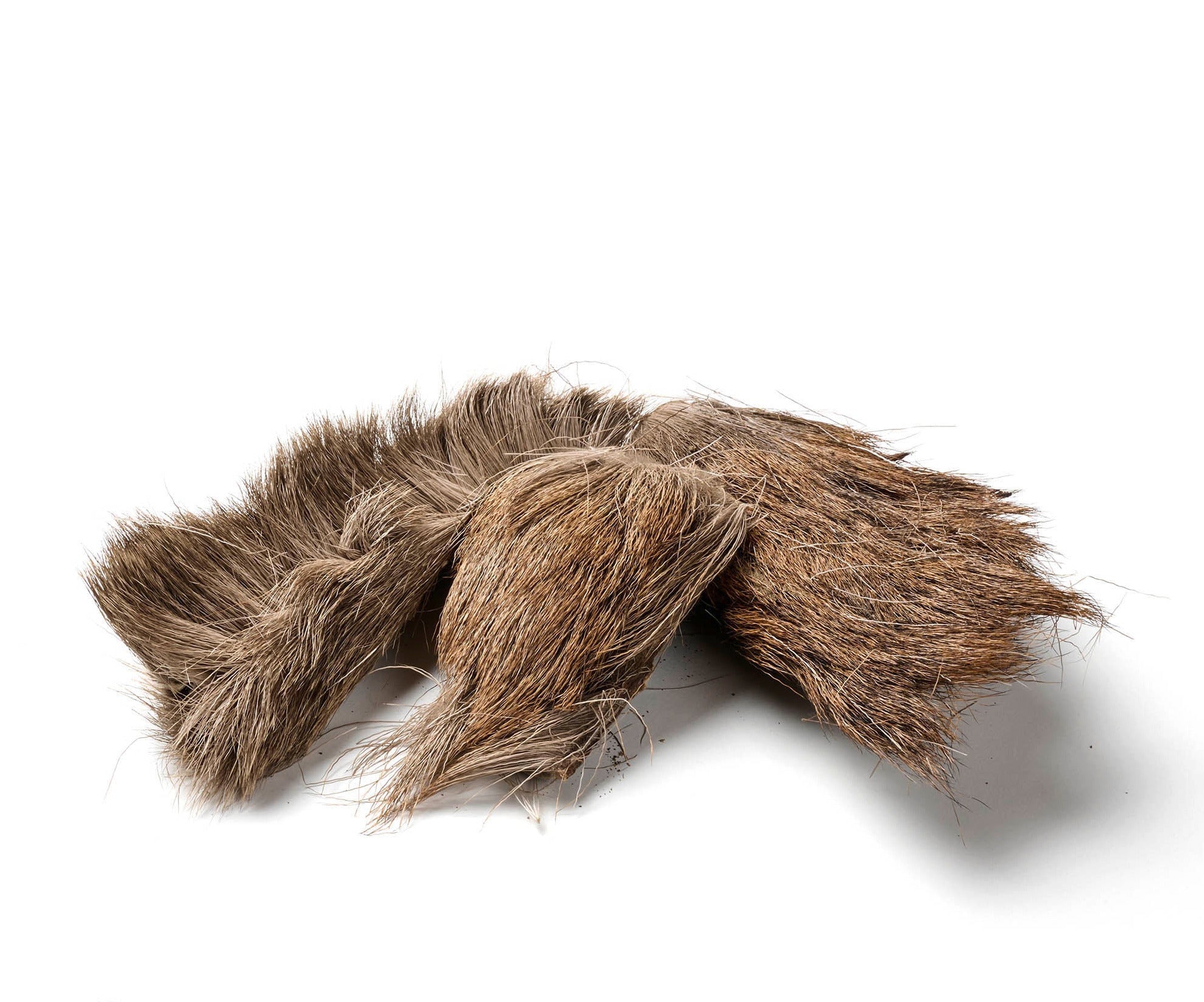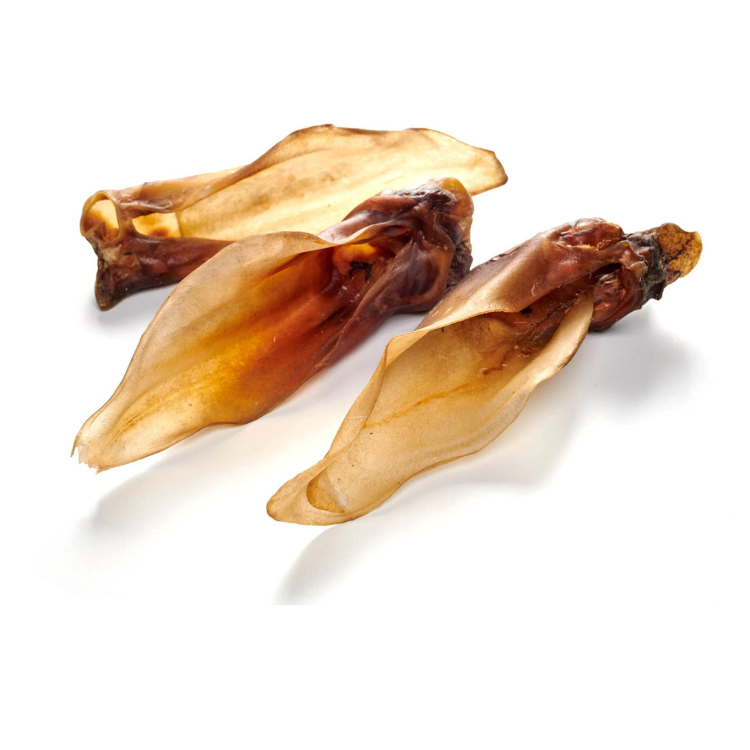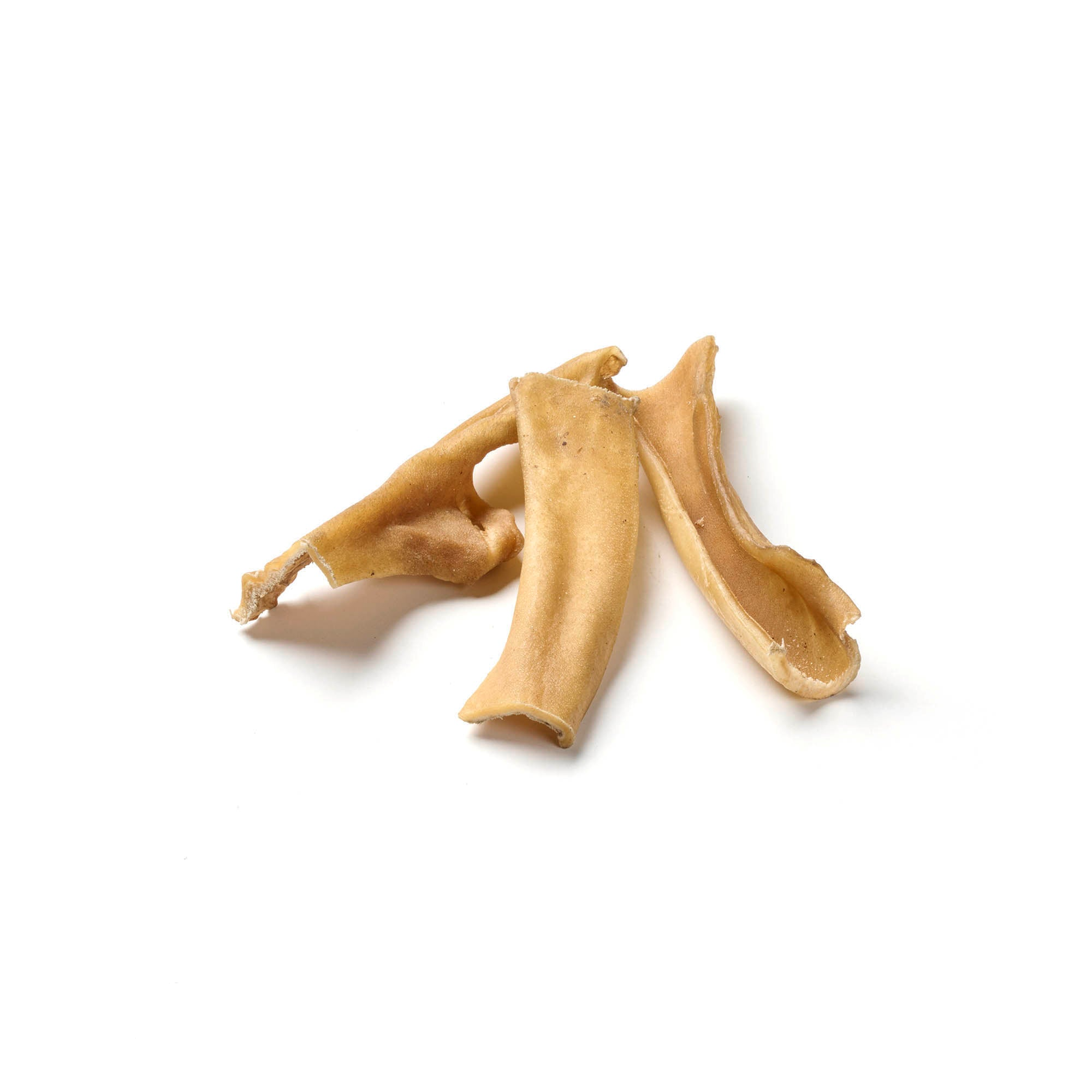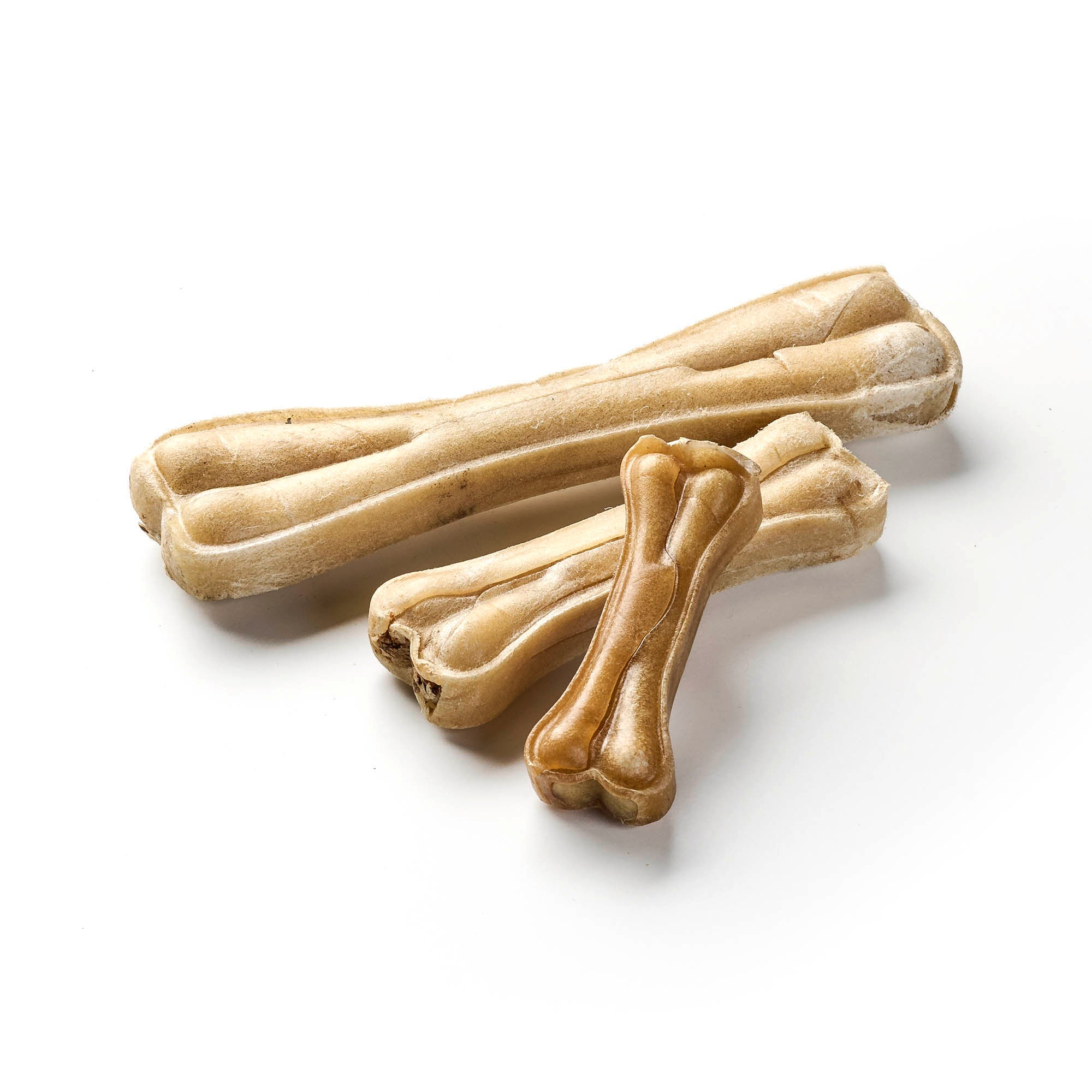
Why dogs roll around: The most curious and common reasons
Share
Dogs are fascinating creatures with a variety of behaviors that sometimes seem astonishing or simply adorable. One of them is rolling - whether on a green meadow, in a fragrant flower or, unfortunately, in less pleasant things. But what is really behind it? Rolling is much more than a cute sight or a moment of fun. It reveals a lot about a dog's instincts, needs and psyche. And if you understand their behavior better, you can also find the right balance between natural instinct and good hygiene. Chews play an underestimated role in this, because they not only provide entertainment, but also a useful addition to health and well-being.
Contents: Why dogs roll around: The most curious and common reasons
- Natural Instincts: Why Dogs Instinctively Roll
- Curious reasons: When rolling seems funny or confusing
- Health Causes: When Rolling Can Be a Warning Signal
- The right measure: When rolling becomes problematic
- Tips for dog owners: How to positively influence rolling behavior
- Tips for choosing the best products for your dog's well-being
- Summary: Understanding and using rolling effectively
Natural Instincts: Why Dogs Instinctively Roll
Rolling is deeply rooted in our dogs' instincts and can be traced back to their wild ancestors. For a wolf, adapting to its surroundings and absorbing or concealing scents was vital to survival. These natural instincts have been preserved in our four-legged friends to this day. Whether it's absorbing scents or leaving behind their own, rolling is a natural expression of their animal roots. This is where chews come in: They can support the natural prey drive while providing a healthy distraction.
Camouflage: Hiding your own scent
One of the most fascinating reasons dogs roll is the desire to camouflage their own scent. In the wild, moving stealthily was crucial for wolves to catch prey or avoid enemies. This behavior can still be observed today when dogs roll around in things that smell strong or have an unpleasant odor. Even though this is often unpleasant for us humans, the dog is simply following its instinct. Chewing items such as natural beef scalp , dried beef tripe pieces or lamb ears can help channel the hunting instinct in a meaningful and species-appropriate way. They offer the four-legged friends the opportunity to give in to their inner wolf without throwing themselves into mud puddles.
Treat your dog to something special with our chews!
Communication: Marking and exchange of odors
In addition to camouflage, communication also plays a crucial role. Dogs use smells to send messages and to clarify their social status. When they roll around, they pick up foreign smells, which they then spread throughout their pack. This behavior is like a personal messenger. A chew that has special flavors, such as dried lamb tripe , can help stimulate olfactory perception and promote social interaction among dogs. Also suitable are rabbit ears with fur , which are not only aromatic, but also promote the dog's natural instinct. Natural chews made from high-quality meat are perfect for deepening the bond - both between dog and owner and between dogs.
Curious reasons: When rolling seems funny or confusing
Sometimes the rolling around seems simply strange and makes you smile. Dogs often have seemingly strange preferences that are difficult to understand from a human perspective. But even these behaviors usually have a deeper reason - from sheer joy of life to very "exotic" scent preferences. Chews can play an interesting role here by stimulating the senses and contributing to entertainment.
Play and joy: expression of pure joy of life
Many dogs simply roll around for pure joy. Whether on a freshly mown lawn or in the snow - rolling around is fun and gives dogs a feeling of freedom. It is a playful way to let off steam and release their energy. Chewing items can be a wonderful addition to support this joy. A tasty snack after exuberant play not only ensures relaxation, but also reinforces the positive associations.
Dirty Preferences: Why Some Dogs Roll in Poop
Unfortunately, dogs don't just roll around in flower fields, but also in things that we humans consider "dirty" - from garbage to carrion. Why do they do this? Often it's to cover up smells or simply to give in to their curiosity. This is less pleasant for dog owners, but natural chews such as dried lamb tripe or beef strops can offer an excellent alternative. These chews effectively distract the dog, satisfy its natural chewing instinct and at the same time support dental health. This keeps the four-legged friend happy, occupied and the sofa clean - without any unpleasant smells in the house.
Health Causes: When Rolling Can Be a Warning Signal
Rolling is usually a harmless and natural behavior that dogs display out of joy or instinct. But in some cases it can also be a sign of stress or health problems. Stress can be triggered by changes in everyday life, such as moving house, unusual noises or a lack of activity. Insufficient exercise can also cause the dog to behave in an unusual way. Excessive or unusual rolling can therefore be a sign that the dog is internally unbalanced or has physical problems.
Natural chews such as dried horse skin or cod skin are a great way to calm your dog while supporting their general well-being. Not only do they promote dental health, they also help to keep your dog busy and distracted. Chewing fun like this can help your dog relax and reduce stress.
Itching and skin problems: When it becomes uncomfortable
Itching and skin problems are common reasons why dogs roll around more often. Allergies to pollen, certain foods or environmental factors are often the main cause. Parasites such as fleas or mites can also cause severe itching, which causes dogs to constantly scratch or roll around to get relief. Dry skin, caused by poor diet or environmental influences, further exacerbates the problem.
To support the dog, it is important to identify the causes of the itching and treat them specifically. A balanced diet rich in omega-3 fatty acids can strengthen the skin barrier and have an anti-inflammatory effect. In addition, chews such as salmon chew sticks or chicken feet offer a tasty way to promote skin and coat health. They provide valuable nutrients and at the same time offer tasty chewing fun that keeps the dog busy and supported.
High quality dog chews to pamper your dog, now available!
The right measure: When rolling becomes problematic
Rolling is usually a normal behavior, but sometimes it can reach a level that indicates deeper problems. If a dog rarely stops rolling or exhibits unusual behavior, it's worth taking a closer look. Excessive rolling can be caused by boredom, stress, or even physical pain, so it's crucial to identify the cause and take targeted action.
To avoid boredom and stress, varied activities are essential. Walks with challenges such as search games or learning new tricks promote mental stimulation. In addition, chewing items such as beef scalp or dried horse ears are an excellent way to keep the dog occupied in a meaningful way. These snacks satisfy the natural chewing instinct, distract the dog and help to burn off excess energy. However, if physical complaints are suspected, a veterinarian should definitely be consulted to rule out health problems. With the right mix of activity, relaxation and care, the dog will remain happy and balanced.
Tips for dog owners: How to positively influence rolling behavior
Rolling is a natural instinct, but with the right strategies it can be channeled in a positive direction. Through targeted activity and training, the dog can learn when and where rolling is allowed. Chewing items are not only a sensible reward, but also promote general well-being. Supplemented by regular care and hygiene, the behavior can be optimally managed.
Training and Distraction: Controlling and Promoting Behavior
Training is an effective method of controlling a dog's behavior. Through clear rules and positive reinforcement, the dog learns what is allowed and what is not. Distraction plays a crucial role in this: when the dog is busy, there is less time for undesirable behavior such as excessive rolling.
Chews are an ideal tool here. They not only serve as a reward during training, but also effectively distract the dog. Chews that provide long-term entertainment, such as dried beef scalp or buffalo hide bones , promote concentration and ensure a happy four-legged friend. With patience and consistency, even difficult behavior patterns can be brought under control.
Care and hygiene: When rolling leaves traces
After rolling, there is often more left than a happy dog. Dirt, unpleasant smells or even parasites such as fleas and ticks can be the result. Especially for dogs that like to roll around and do so frequently, regular grooming is essential to ensure their hygiene and health. Brushing the coat should be part of the routine, as it not only helps to remove dirt and loose hair, but also promotes blood circulation in the skin. Especially in long-haired dogs, it prevents the formation of knots or mats, which can be painful.
A mild dog shampoo is a good choice if necessary to clean the dog and remove unpleasant odors. It is important to use a product that has been specially developed for dogs, as their skin is more sensitive than that of humans. However, regular bathing should not be overdone in order to maintain the skin's natural protective layer. In addition, care sprays can keep the coat supple and give it a fresh scent.
Tips for choosing the best products for your dog's well-being
Choosing the right products for dogs is crucial for their well-being and health. With the multitude of options on the market, dog owners can easily lose track. But with a few helpful tips and specific criteria, you can put together the perfect range for every four-legged friend. From nutrition to care - the right choices not only make your dog happy, but also strengthen the bond between humans and animals.
High-quality food as a basis: What matters
A balanced diet forms the basis for a long, healthy and happy dog life. Choosing the right food plays a crucial role, as nutritional needs vary depending on the dog's age, breed, size and individual requirements. Puppies, for example, require a different nutrient profile than adult or older dogs. The animal's activity level and state of health are also important factors when choosing the right food.
High-quality dog food should always have a high meat content, as dogs are carnivores and need animal proteins for their muscles and general health. At the same time, the food should be free of unnecessary fillers such as sugar, grains or artificial additives, which not only offer little nutritional value but can also cause allergies or digestive problems. Combining dry and wet food can help to make the diet more varied. Wet food contains more moisture and supports fluid absorption, while dry food helps clean teeth and has a longer shelf life.
In addition, nutritional supplements can help meet a dog's specific needs. Omega-3 fatty acids, for example in the form of salmon oil, promote healthy skin and a shiny coat, while joint supplements such as glucosamine and chondroitin support joint health in older or very active dogs. For dogs with sensitive stomachs, prebiotics and probiotics can be a useful supplement as they strengthen the intestinal flora and promote digestion.
Toys and activities: mentally and physically challenging
Keeping your dog busy is the key to a happy and balanced dog. Sufficient physical and mental activity not only contributes to general health, but also prevents behavioral problems such as boredom or excessive nervousness. Toys should therefore not only be entertaining, but also promote the dog's cognitive abilities. Intelligence toys such as food balls, puzzle games or sniffing mats are an ideal way to mentally challenge your dog and train its problem-solving skills at the same time. These types of toys not only keep your four-legged friend mentally fit, but also provide a welcome change in everyday life.
For particularly active dogs, robust balls, Frisbees or tug toys are suitable, as they remain durable even during intensive play sessions. They promote the dog's physical fitness and strengthen the bond between humans and animals through shared play sessions. When selecting, make sure that the materials are non-toxic, robust and free of harmful plasticizers in order to ensure the dog's safety.
Natural chewing bones, such as dried buffalo hide or deer ears , offer a combination of fun and teeth cleaning. While they keep the dog busy, they also clean the teeth and massage the gums. Ropes or special chewing toys can also be a useful addition, as they not only satisfy the need to chew, but also promote dental health. A varied selection of toys ensures that the dog remains physically and mentally stimulated and feels completely comfortable.
Care products: Keep fur, skin and claws healthy
Regular grooming is essential for a dog's well-being. The selection of the right grooming products should be tailored to the dog's individual needs. A mild dog shampoo without harsh chemicals ensures gentle cleaning, while grooming sprays keep the coat supple.
Claw care should not be forgotten either. A high-quality pair of nail clippers or a nail grinder make cutting easier and reduce the risk of injury. For dogs with sensitive paws, paw balms are a useful addition, especially in the cold season when road salt puts strain on the paws.
Safety and comfort: Finding the right equipment
Collars, harnesses and leashes are much more than just accessories. They ensure safety and comfort in everyday life. When choosing, make sure that the materials are durable, comfortable to wear and easy to clean. A well-fitting harness distributes pressure evenly and protects the spine, while reflective elements ensure greater visibility in the dark.
The sleeping place also plays an important role. A comfortable dog bed that is easy to clean supports the dog's recovery. Orthopedic beds are particularly suitable for older dogs or animals with joint problems and contribute to a relaxed sleep.
Summary: Understanding and using rolling effectively
Rolling is an important part of a dog's natural behavior. It can be an expression of joy, stress relief, or a health problem. If you understand the signals, you can respond better to your dog's needs. Chews play an important role in this: They not only promote health, but also help to keep the dog occupied in a meaningful way. With the right balance of care, activity, and training, rolling behavior can be channeled in a positive direction. This keeps the dog happy, healthy, and balanced, and living together becomes even more enjoyable for both sides.
Pamper your four-legged friend with our delicious chews!

